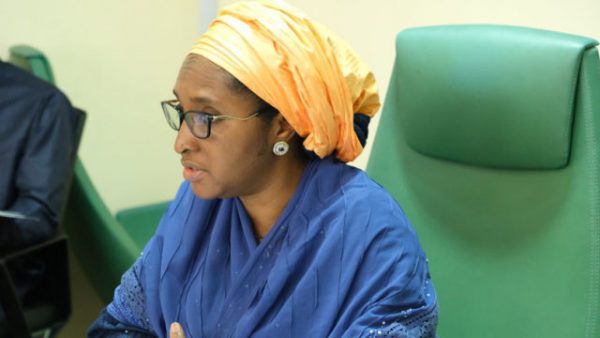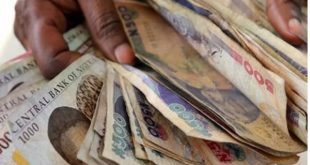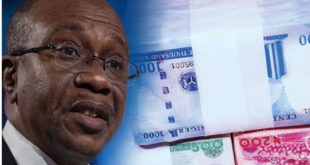
The Federal Government has spent the sum of N3.39tn within the first six months of this year to finance the 2019 budget.
She gave the indication in Abuja on Monday during a public presentation of the 2020 budget, which was submitted by President Muhammadu Buhari to a joint session of the National Assembly last week.

The minister said when compared to the pro-rated amount of N4.58tn that should have been released during the six months period, the N3.39tn represented a performance of 76 per cent.
Ahmed said as of September 30, 2019 a total of about N294.63bn had been released for capital projects, adding that spending on capital projects had been prioritised in favour of critical ongoing infrastructural projects in the power, roads, rail and agriculture sectors

She said the inability of the Federal Government to raise enough funds to finance the 2019 budget resulted in revenue underperformance by N1.45tn in the first six months of this year, the Minister of Finance, Budget and National Planning, Mrs Zainab Ahmed, has said.

She also said that the government might not be able to meet 80 per cent of the budget performance for this year.
The Monday session was attended by Director-General, Budget of Office of Federation, Mr Ben Akabueze; Minister of State for Budget, Mr Clement Agba; Minister of Information, Alhaji Lai Mohammed, and other top government officials and representatives of the civil society.
The Federal Government had proposed to generate N6.99tn in the 2019 budget.
Based on the budget document, the sum of N3.49tn was expected to be generated during the first half of this year.
But Ahmed said based on the revenue performance, only N2.04tn was earned by the government from all its revenue items in the six-month period.
According to her, this resulted in a funding shortfall of N1.45tn, as only about 58 per cent of the expected revenue had been achieved.
Explaining why the government could not meet its revenue target, she said it was due to the inability to actualise some its one-off items.
The one-off items, according to her, are the N710bn from oil joint venture asset restructuring and N320bn from revision of the oil production sharing contract legislation.
She said fiscal deductions by the Nigerian National Petroleum Corporation for federally-funded projects also exceeded the target.
On how the revenue was earned, she said oil revenue was N900bn as against the budgeted amount of N3.68tn; while non-revenue had N614.5bn as against the budgeted N1.4tn.
Similarly, she said the government earned independent revenue of N217.8bn as against budgeted amount of N631bn while special levies generated N310bn as against budgeted amount of N12.9bn
She said projected revenue for signature bonus, domestic recoveries, assets and fine, proceeds of oil assets ownership restructuring, grants and donor funding, dividend from NLNG, minerals and mining revenue among others were yet to be actualised.
She said, “As of half year, the Federal Government’s actual aggregate revenue was N2.04tn, which is 58 per cent of the prorate target.”
The finance minister called for support of the private sector to enable the government to meet its developmental programmes for the country.
She added, “Nigeria must mobilise significant resources to invest in human capital development and critical infrastructure given the low revenue to GDP ratio currently at about seven per cent.”
On why the adoption of Public Private Partnership failed as a means of executing capital projects, she attributed the development to poor preparation of projects.
She said considering the fact that capital releases started late in the year, it would be difficult for the 2019 budget to be effectively implemented.
She added, “As to whether we will reach the N8.33tn at the end of 2019, it is very unlikely and that is why we have to make special efforts to boost revenue performance.
“It is clear that we cannot reach even 80 per cent and that is why we have to do several things to make sure that revenue performance is enhanced.”
 MMS PLUS NG – Maritime, Aviation, Business, Oil and Gas News Online Newspaper with coverage in Maritime, Oil and Gas, Aviation, Power and Energy as well as Financial News
MMS PLUS NG – Maritime, Aviation, Business, Oil and Gas News Online Newspaper with coverage in Maritime, Oil and Gas, Aviation, Power and Energy as well as Financial News









